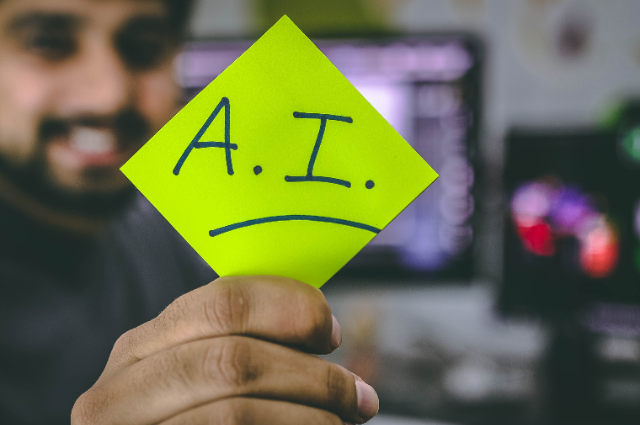
Photo by Hitesh Choudhary on Unsplash
Introduction to Artificial Intelligence
Artificial intelligence (AI) is a game-changer in our world, with its ability to process vast amounts of data and make intelligent decisions. AI is already being utilized in various applications such as self-driving cars, facial recognition software, virtual assistants, medical diagnosis, and fraud detection. However, AI also raises concerns about job displacement, malicious use, and ethical implications. This article explores the impact of AI on society and the need for careful consideration and regulation.
Applications of Artificial Intelligence
AI is being used in various fields, including self-driving cars, facial recognition software, virtual assistants, medical diagnosis, and fraud detection. Each of these applications has its own unique benefits and challenges.
- Self-Driving Cars
AI is a key player in the development of self-driving cars. These vehicles use AI algorithms to analyze sensor data and make real-time decisions about acceleration, braking, and steering. Self-driving cars have the potential to reduce accidents, improve traffic flow, and provide greater mobility for individuals who are unable to drive.
- Facial Recognition Software
Facial recognition software utilizes AI to analyze and identify individuals based on their facial features. This technology has been widely adopted for security purposes, such as access control and surveillance. However, concerns have been raised regarding privacy and the potential for misuse of this technology.
- Virtual Assistants
Virtual assistants, such as Siri, Alexa, and Google Assistant, are AI-powered applications that can perform tasks and provide information based on voice commands. These assistants have become an integral part of our daily lives, simplifying tasks and enhancing convenience.
- Medical Diagnosis
AI has made significant advancements in the field of medical diagnosis. Machine learning algorithms can analyze medical images, such as X-rays and MRIs, to detect abnormalities and assist healthcare professionals in making accurate diagnoses. AI-powered systems can also analyze patient data to predict disease outcomes and recommend personalized treatment plans.
- Fraud Detection
Financial institutions utilize AI algorithms to detect fraudulent activities and protect against financial losses. These algorithms can analyze large volumes of transaction data in real-time, identifying patterns and anomalies that may indicate fraudulent behavior. AI-powered fraud detection systems have proven to be highly effective in minimizing financial risks.
Concerns and Challenges
While AI has numerous benefits, it also presents several challenges that need to be addressed.
- Job Displacement
One of the primary concerns surrounding AI is the potential loss of jobs to automation. As AI technology continues to advance, there is a fear that many traditional jobs may become obsolete. However, it is important to note that while AI may replace certain tasks, it also has the potential to create new job opportunities in fields such as AI development, data analysis, and robotics.
- Malicious Use of AI
The misuse of AI technology for malicious purposes is another significant concern. AI algorithms can be used to create deepfake videos, generate fake news, and launch cyber-attacks. It is crucial to develop robust security measures and regulations to prevent the misuse of AI and protect individuals and organizations from potential harm.
- Ethical Implications
AI raises ethical questions regarding privacy, bias, and accountability. Facial recognition technology, for example, has been criticized for its potential to infringe upon individuals' privacy rights. AI algorithms can also perpetuate biases present in the data they are trained on, leading to discriminatory outcomes. It is essential to establish ethical guidelines and frameworks to ensure that AI is used in a fair and responsible manner.
The Need for Regulation and Policy
Given the potential impact of AI on society, it is crucial to develop comprehensive regulations and policies. These should address issues such as data privacy, algorithm transparency, accountability, and the ethical use of AI. Governments, industry leaders, and experts need to collaborate to establish guidelines that promote the responsible development and deployment of AI technology.
Conclusion
Artificial intelligence has the power to transform our society in profound ways. While it offers numerous benefits, it also presents challenges that must be addressed. By carefully considering the potential impacts of AI and implementing appropriate regulations, we can harness the full potential of this technology while safeguarding against its potential risks. It is essential to strike a balance between innovation and responsibility to ensure that AI is used for the betterment of humanity.
. . .
Sources:
- Artificial Intelligence and its Impact on Society www.forbes.com
- The Role of AI in Our Daily Lives https://www.bbc.com
- The Ethical Implications of AI https://www.nature.com
